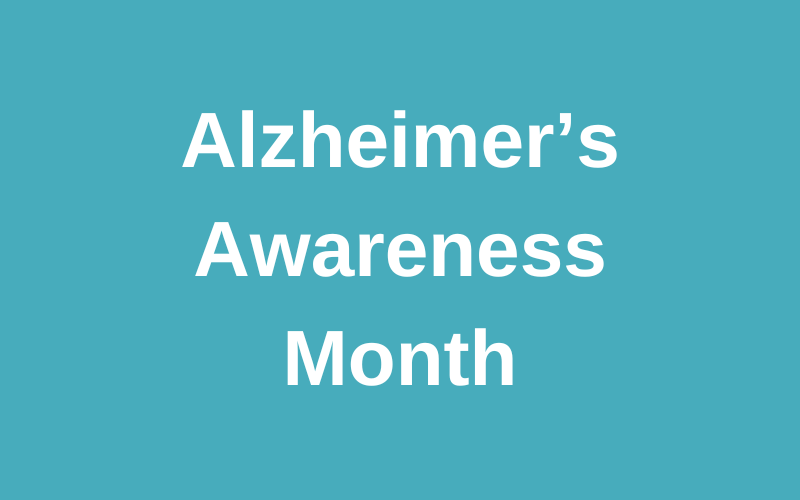Dealing with wandering behavior and home disorientation can be quite a challenge for families and caregivers, especially when it involves caring for those with dementia or cognitive issues.
At Assisting Hands Home Care in North Texas, we are well aware of the unique hurdles posed by wandering behavior. In this extensive guide, we’ll delve into the reasons behind wandering behavior, and the potential risks associated with it, and provide practical advice and strategies to prevent home disorientation, thus boosting the safety and well-being of your loved ones.

Understanding the Complexities of Wandering Behavior
Wandering behavior is often seen in individuals suffering from Alzheimer’s disease, dementia, or other cognitive impairments. It might manifest as aimless pacing, attempts to leave the home, or even getting lost in places they should be familiar with. It’s essential to grasp that wandering behavior is not deliberate but rather a consequence of cognitive decline.
Root Causes of Wandering Behavior
- Disorientation: Cognitive decline can lead to confusion and disorientation, making individuals believe they are somewhere else or at another time. This confusion often drives them to wander in search of a familiar setting.
- Restlessness: Some individuals with cognitive issues might become restless or anxious, prompting them to move or wander to alleviate their discomfort.
- Basic Needs: Wandering could also stem from unmet basic needs like hunger, thirst, or the need to use the restroom. Unfortunately, the affected person may struggle to communicate these needs effectively.
- Past Habits: In certain cases, individuals might be trying to fulfill past habits or responsibilities, such as going to work or attending to familial duties.
The Perils of Wandering
Wandering behavior poses significant risks to the safety and well-being of individuals grappling with cognitive impairments.
Here are some potential dangers associated with wandering:
- Falls: Wandering individuals are susceptible to tripping and falling, resulting in injuries that can range from minor bruises to severe fractures.
- Exposure to Weather: Wandering exposes individuals to extreme weather conditions, potentially leading to heatstroke, hypothermia, or sunburn.
- Traffic Hazards: If a person with cognitive issues wanders near roads or highways, they face the danger of being struck by a vehicle.
- Dehydration and Malnutrition: Wandering may disrupt access to food and water, resulting in dehydration and malnutrition.
- Increased Stress and Anxiety: Wandering can be a source of immense stress for both the affected individual and their caregivers, potentially leading to heightened anxiety and fatigue.

Preventing Home Disorientation and Wandering
Effectively preventing wandering behavior and home disorientation requires a multi-pronged approach tailored to the individual’s specific needs and challenges.
Below, we provide practical strategies to enhance the safety of your loved ones:
Maintain a Regular Routine:
- Establishing a consistent daily routine can provide structure and predictability.
- Include set meal times, bathroom breaks, and engaging activities in the schedule.
- Such routines can help alleviate restlessness and confusion.
Secure the Home:
- Install locks and alarms on doors and windows to deter unauthorized exits.
- Consider incorporating motion sensors and security cameras to monitor movements.
- Use childproof covers on doorknobs or discreet slide bolts to keep them out of sight.
Ensure Identification:
- Always ensure your loved one wears an ID bracelet or necklace featuring their name, address, and emergency contact information.
- Sew name tags into their clothing for added identification.
Maintain a Safe Environment:
- Remove potential hazards like clutter or tripping hazards from living spaces.
- Install handrails and grab bars to enhance stability and balance.
Implement Distraction Techniques:
- Engage the individual in activities that redirect their attention and energy, such as puzzles, music, or hobbies.
- Provide sensory stimulation through textured objects or soothing music.
Monitor Medications:
- Ensure medications are taken as prescribed and be vigilant for any side effects that may contribute to wandering behavior.
- If medication-related concerns arise, consult a healthcare provider for guidance.
Encourage Physical Activity:
- Regular exercise can reduce restlessness and improve sleep patterns.
- Consider activities such as gentle stretching, short walks, or chair exercises.
Provide Supervision and Companionship:
- Seek the assistance of professional caregivers or family members to offer supervision and companionship.
- These caregivers can provide support and help when needed while keeping a watchful eye on safety.
Leverage Technology:
- Utilize wearable GPS tracking devices that allow you to locate your loved one if they wander.
- Consider setting up discreet video monitoring systems to keep an eye on their movements.
Seek Expert Guidance:
- Consult healthcare professionals, including geriatric specialists and neurologists, for expert advice on managing wandering behavior.
- Consider joining support groups for caregivers to share experiences and valuable insights.

Call Assisting Hands Home Care for Your Loved-One
Caring for loved ones dealing with wandering behavior and cognitive impairments can be a taxing journey, but with the right strategies and support, you can create a safe and nurturing environment for them. At Assisting Hands Home Care in North Texas, our devoted team of caregivers possesses invaluable experience in addressing wandering behavior and preventing home disorientation. We empathize with the unique needs of individuals facing cognitive challenges and are here to provide compassionate care and assistance.
It’s crucial to remember that each person is unique, and the most effective prevention strategies may differ from one individual to another. By combining these prevention techniques and adapting them to your loved one’s specific requirements, you can significantly reduce the risks associated with wandering behavior, ultimately ensuring their safety and well-being. Should you require professional assistance or guidance in caring for your loved one, don’t hesitate to reach out to Assisting Hands Home Care.
We stand by your side, ready to support you throughout your caregiving journey in North Texas.
Call us at (214) 571-7059 for free in-home consultation.







